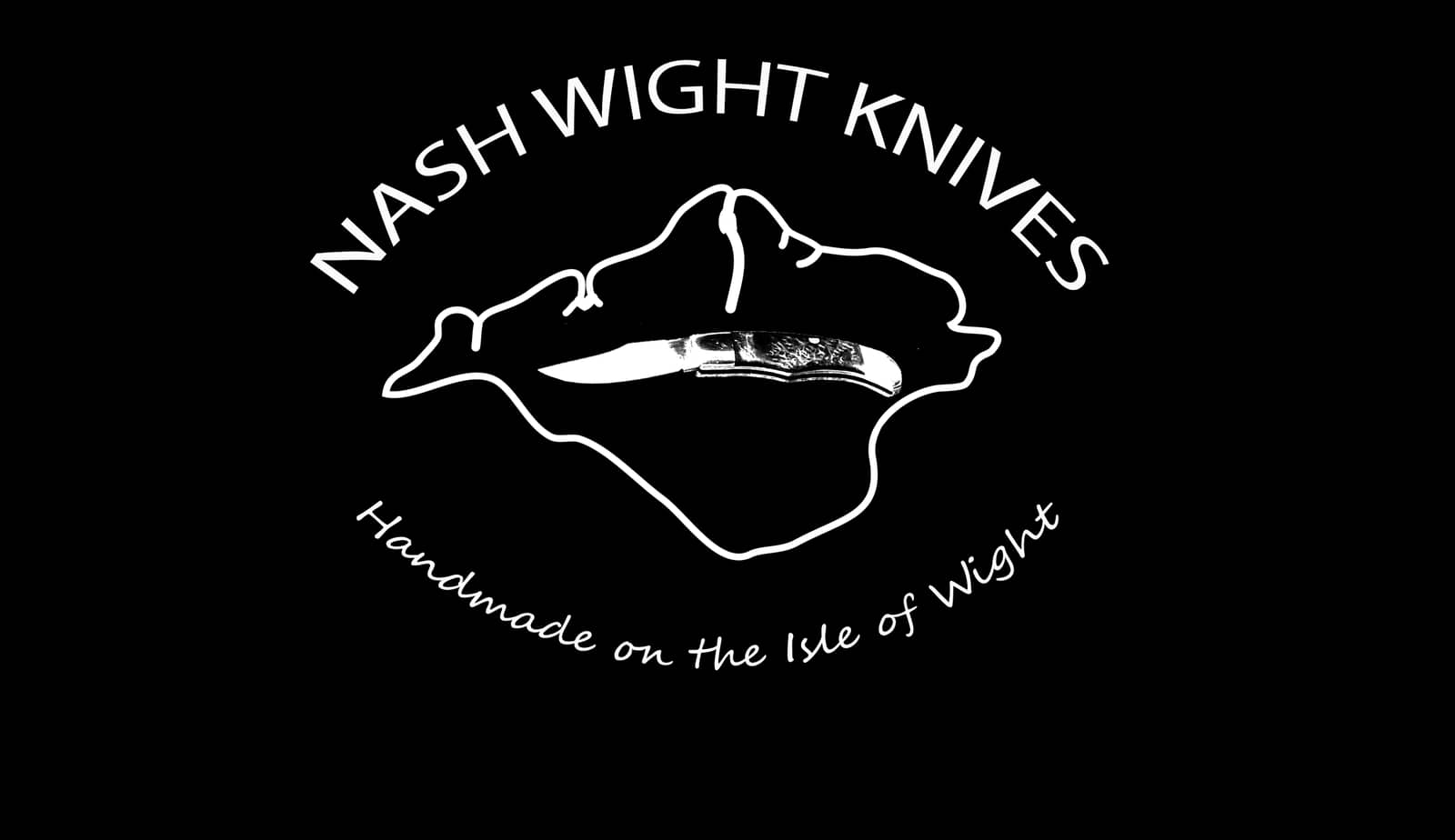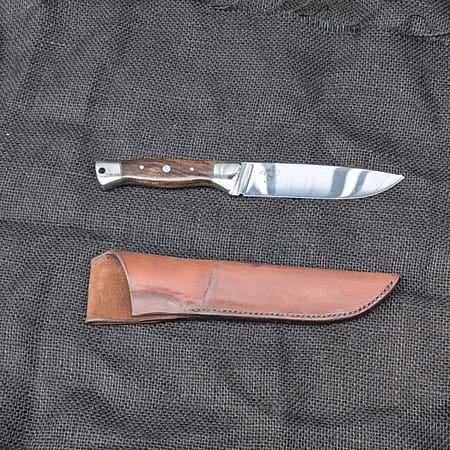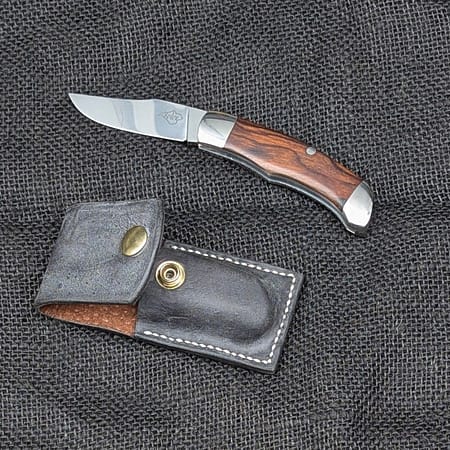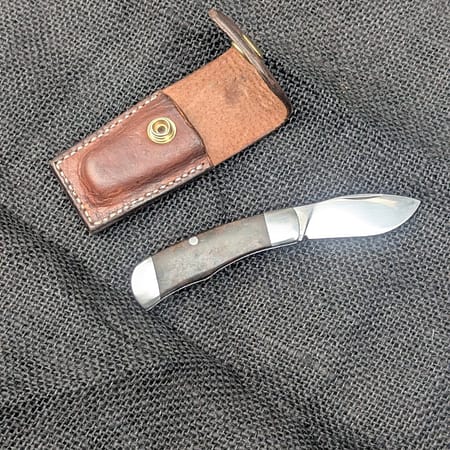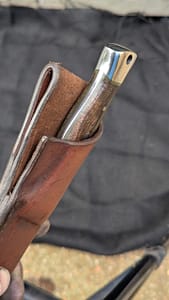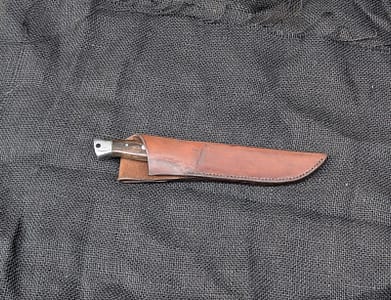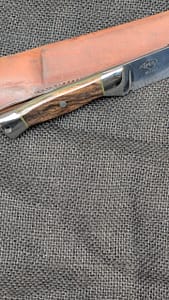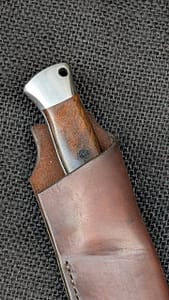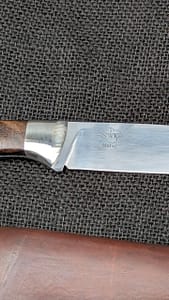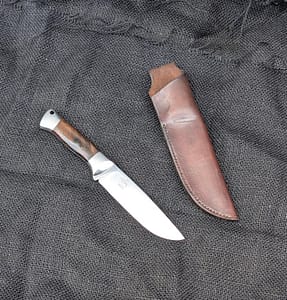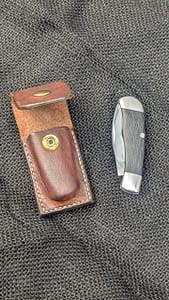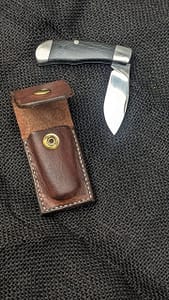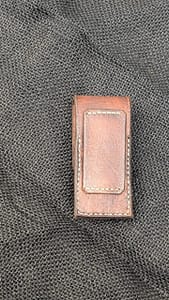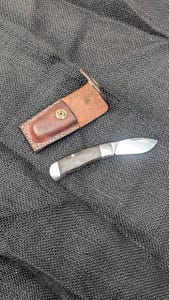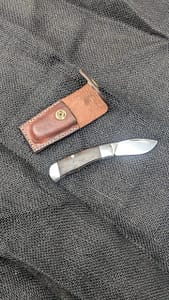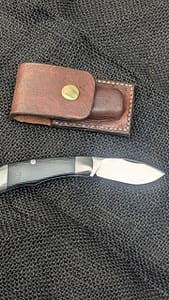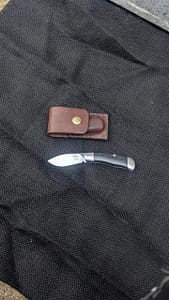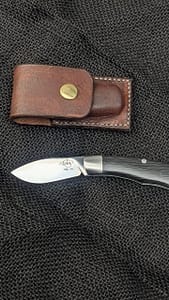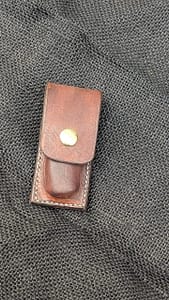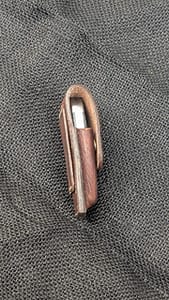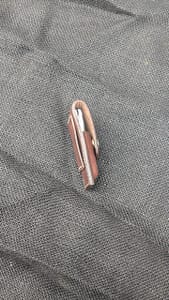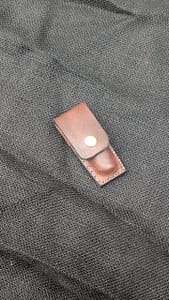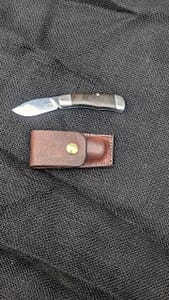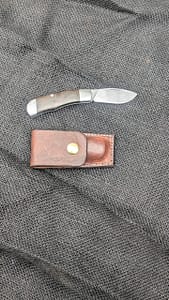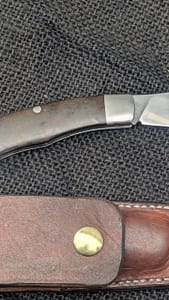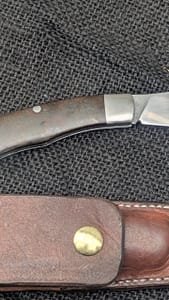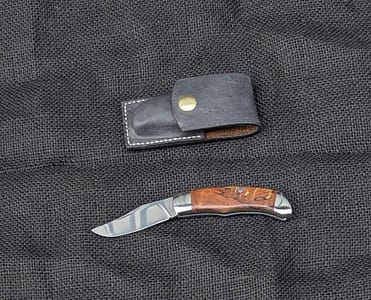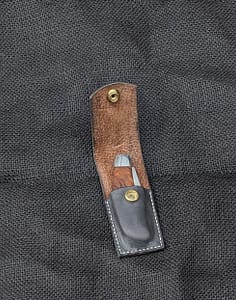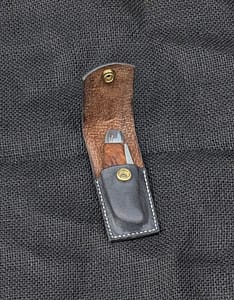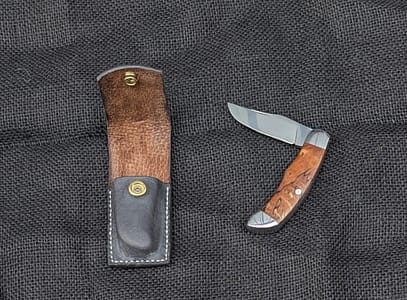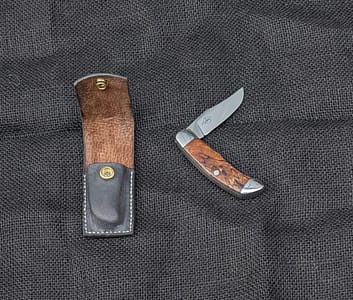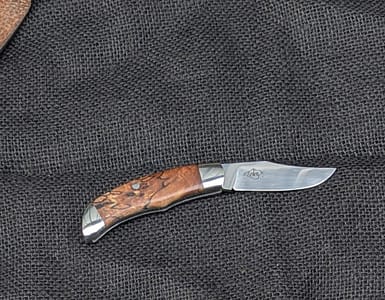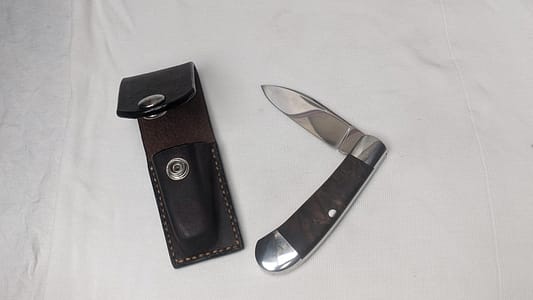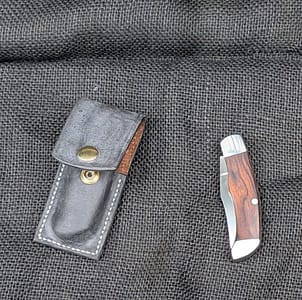NASH WIGHT METALWORKS
Handmade custom knives from the Isle of Wight for discerning collectors, outdoor enthusiasts, chefs and more!

Welcome to Nash Wight Metalworks, my name is Paul, and I am a handmade custom knife maker from the Isle of Wight, UK. I have been making knives now for around 5 years on and off, and I can say it`s something of a passion! I mostly make small slipjoint pocket knives, as well as sheath knives, and kitchen knives. Have a look around the store and if there`s something you like that says “available backorder” it means you need to get in touch via the commissions page, and let me know you`d like something similar.
Please note, as required by UK law, knife sales can only be completed once I have received a photo of your ID which proves you are over 18, this should be emailed to paul@nashwight.com and I cannot proceed with your order until I have received this. If I do not receive this within 7 days, your order will be cancelled and your money refunded in full. Thanks for your understanding, and I hope you enjoy my site!
Please check out the blog pages as well as I will be publishing articles on how to make knives, as I know many knife owners and collectors are also interested in the subject, so I hope you will find information of value!
Knives I make
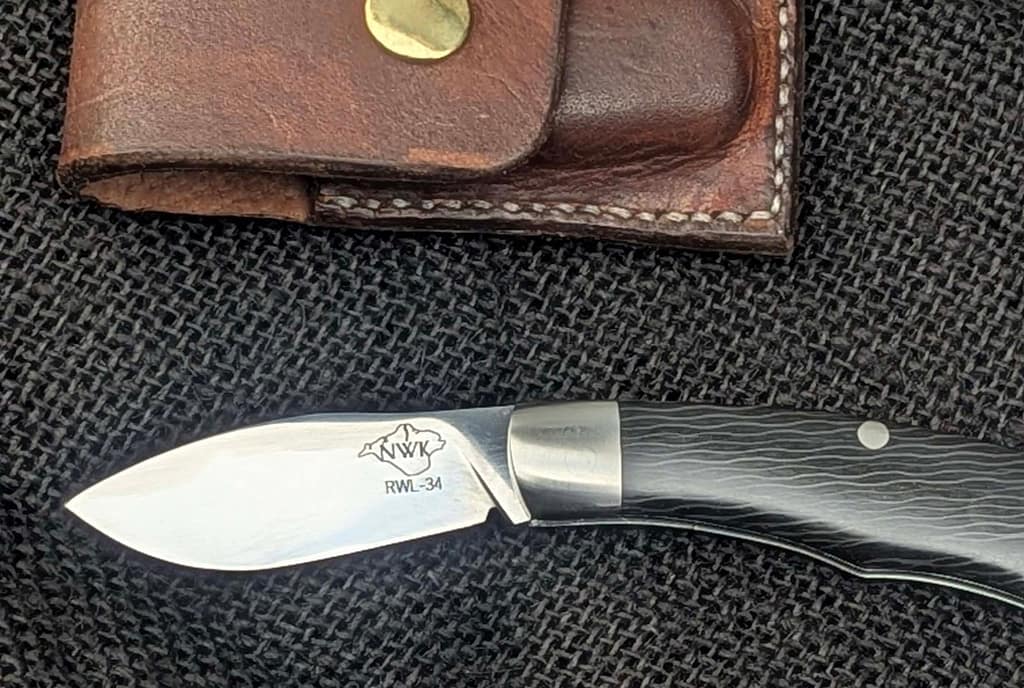
Slipjoints
Slipjoint pocket knives are a classic style of pocket knife where the tension of the back spring holds the blade in position open and closed and at half stop. They are a challenge to build but a lot of fun. I take extra special care to “dial in” the HRC of the springs, usually to between 44 and 47 Rockwell C. Whilst slipjoints can be made from either stainless steels or high carbon, my preference is to use Stainless steels (especially RWL-34) as the pivot point can very easily trap moisture and rust, which can quickly ruin a knife.
Sheath knives
I can usually make any style of sheath knife, such as this bushcraft knife and firesteel set, see my store for currently available and ready to ship handmade custom knives. I can build sheath knives in any steel you like, but I typically use High carbon steel for these. Please read up on current UK knife law before buying a knife, as well as my basic knife care guide for looking after high carbon blades.
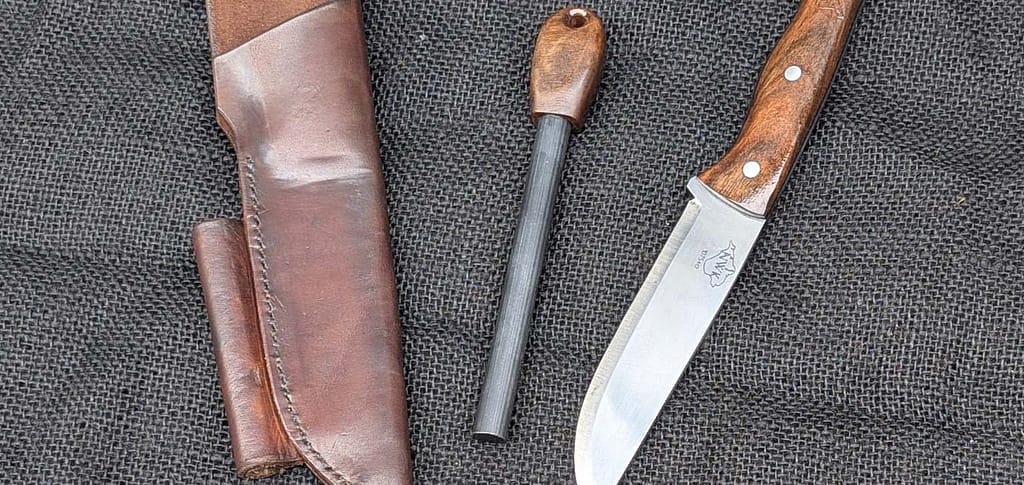
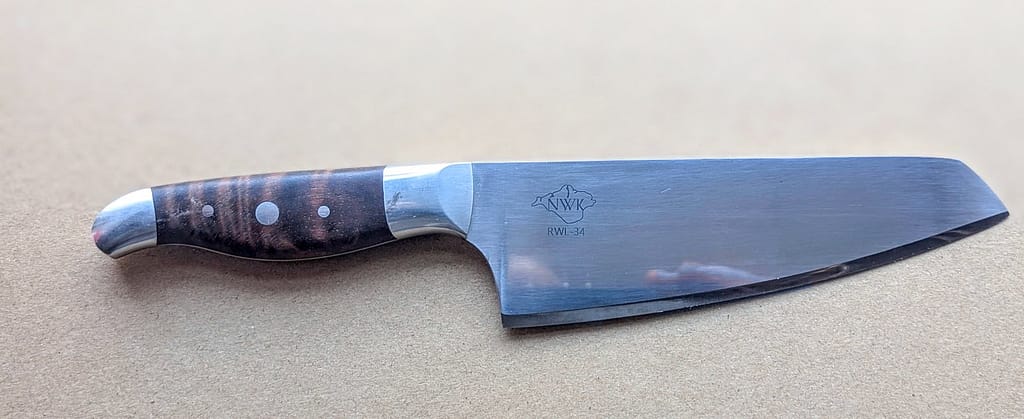
Kitchen and Chef knives
I make a variety of blades for both home and professional use, such as the Santoku inspired knife pictured (in RWL-34, 316 marine stainless steel, and stabilized curly Narra wood). Again, these can be built from any steel you like in the case of commissioned blades, even pattern welded (aka damascus) steel, though I do not make my own damascus at this time, but am in touch with a number of professional smiths that do sell billets commercially. My personal recomendation for these knives is to use a good quality stainless such as RWL-34, due to kitchen conditions and hygene, but I understand that many people love the aesthetic of the patina that high carbon steel develops with use!
Materials
I typically use only high quality steels such as Stainless RWL-34 and Elmax, and High Carbon steels such as 01 tool steel, 80crv2, and often, in the case of forged integral knives, silver steel, the only exception to this is if a customer specifically asks me to build a blade from something sentimental, such as his a leaf spring from his grandads old jeep or something, but this is really not recommended! If you do decide to commission a blade and have a specific high end steel in mind, it may be the case that I am not able to Heat treat it inhouse, so it may have to be sent away for processing, due to issues such as requiring a cryogenic treatment (immersing in liquid nitrogen) which I am not currently set up for.
Handle materials are purchased from well known and reputable vendors, and I generally like to work with resin stabilised exotics or highly figured dense and oily hardwood, though anything is possible, if you want something specific, get in touch via paul@nashwight.com to discuss a commission.
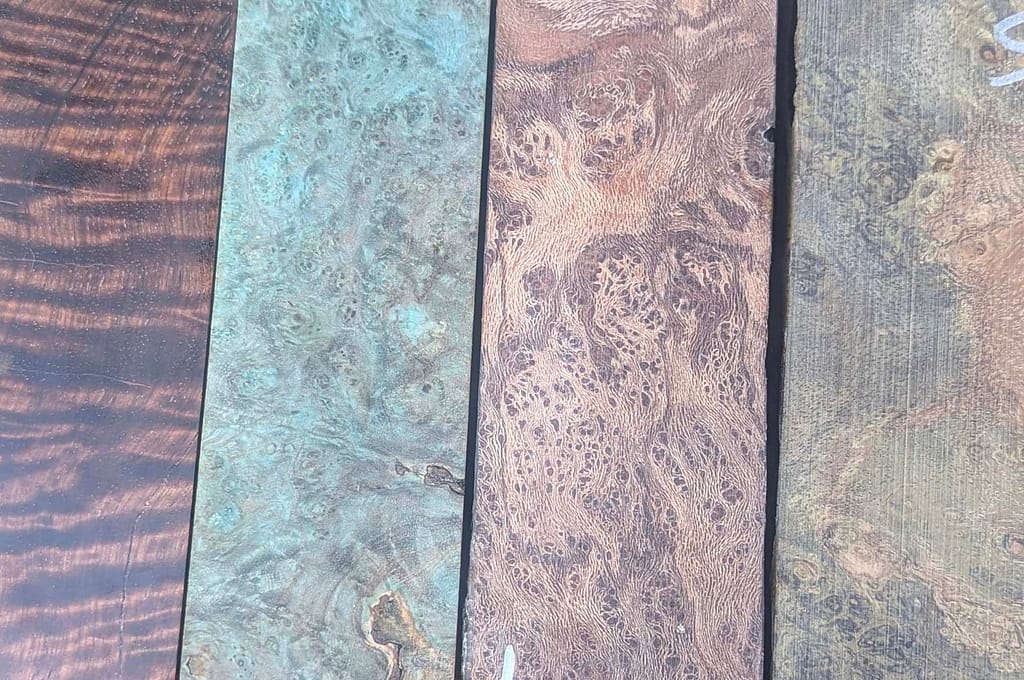
Heat treatment and testing
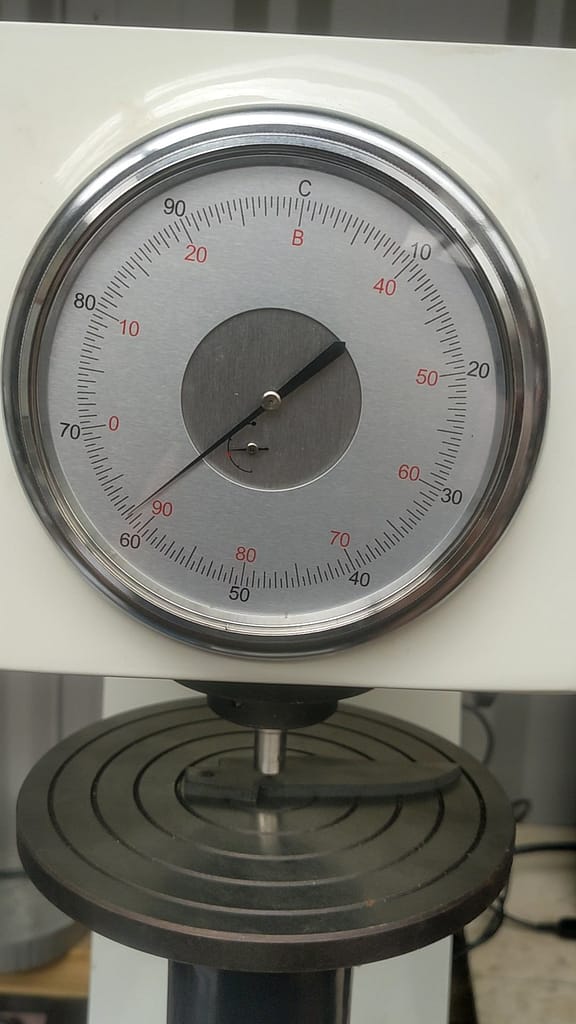
I heat treat all my knives in a temperature controlled kiln (AKA a heat treat oven) to ensure the best results!
All my knives are tested both for hardness, using an Oxford 150A rockwell hardness tester, and for micro fissures using a standard dye penetration test, nothing leaves the shop without these.
As mentioned above, certain steels may require sending off to a commercial heat treatment service.
It`s important to understand about hardness of knife steel and components, as there are sometimes trade-offs of eg, hardness vs toughness, so this needs to be considered when deciding on the use for the knife, and will be discussed should you commission a blade. The website knife steel nerds is an amazing resource and treasure trove of info, written by a professional metallurgist for both makers and users of knives, highly recommended! He has also written a book, available on Amazon here (affiliate link)
Forging
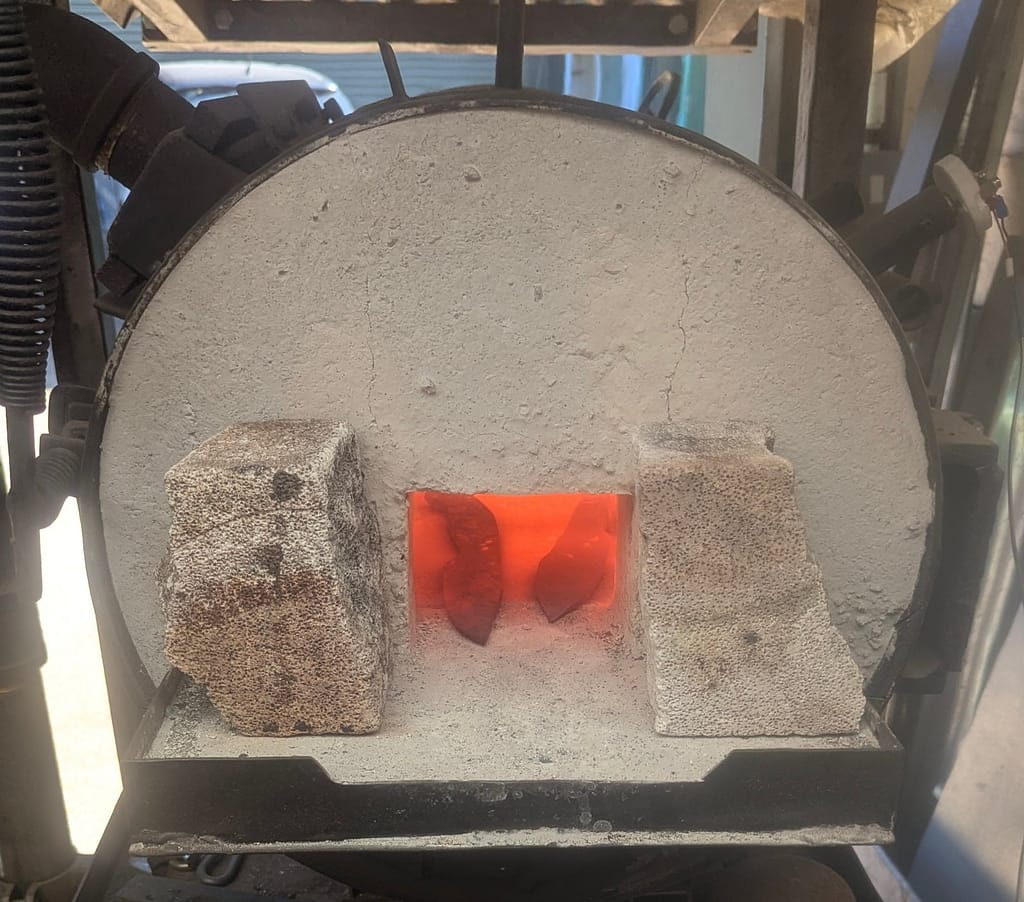
I do a mixture of forging and stock removal techniques, and you should probably take with a pinch of salt the claims of people that claim to “forge 90%” of the knife, whilst there are some incredible bladesmiths in the world, basically all of them will do stock removal (grinding, drilling, sanding, filing) on top of the hammer work, and I am no exception. After forging there is still much work to do, and indeed the forging also means that additional steps must be taken in the heat treatment. This is why I largely keep forging to a minimum, and really only forge knives that are, for example, much bigger, or are integral knives where the blade, tang and bolsters are all one piece. Slipjoint knives are generally not forged, unless made from pattern welded steel or a laminate like “cu-mai”(steel laminated with copper). Also my stainless steel blades are not forged in general, due to the risks of the steel hardening in the air. You can read more here, a fantastic site if you are interested in the metallurgy of knife making!
Handmade Jewellery
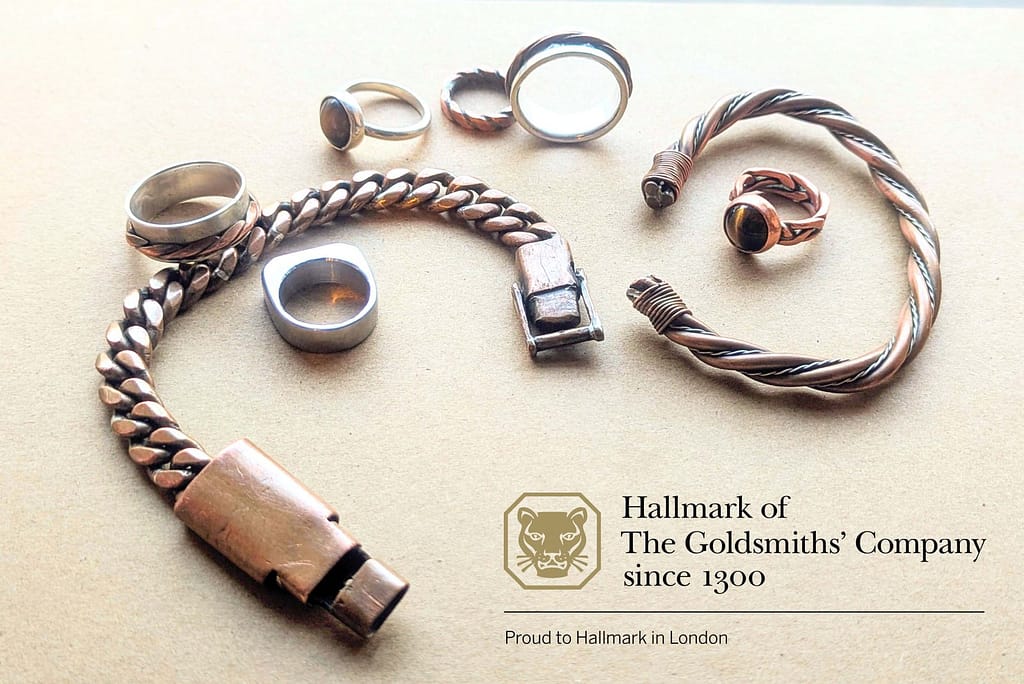
I also make Jewellery, currently working in copper and sterling silver, sometimes mixed, but I may be agreeable to working in gold if the cost is covered by the customer in the case of a commissioned piece. Some of my favorite to make items are cuban chains, like the copper one on the left, and simple rings such as spinners and simple cabochon rings featuring semi-precious gemstones. I am not currently working with very expensive stones such as diamond, so please do not ask! All precious metal jewelry available on the store will be hallmarked according to UK law by the London Assay Office.
Sheath knife in 01 Tool steel
Original price was: £350.00.£300.00Current price is: £300.00.Clipoint in Elmax, 316 and Desert Ironwood
Original price was: £350.00.£325.00Current price is: £325.00.Clip-point slipjoint in Elmax, 316 and stabilised spalted beech
Original price was: £350.00.£325.00Current price is: £325.00.“Nessie” slipjoint in dark green vintage rag micarta, RWL34 and 316
Original price was: £350.00.£325.00Current price is: £325.00.“Nessie” Slipjoint in crosscut Carbonfibre, RWL34 and 316
Original price was: £350.00.£325.00Current price is: £325.00.
At Nash Wight Metalworks, we craft exquisite custom knives and jewellery, blending artistry with functionality, all inspired by the beauty of the Isle of Wight.
SOCIALS
Dont forget to check out my socials !
